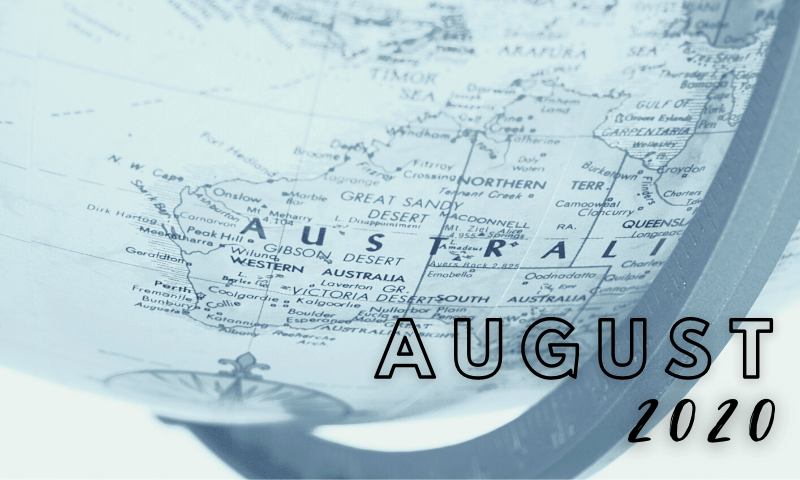Australia is one of the world’s greatest countries. Decades of ambition and innovation have resulted in the prosperous, multiethnic and progressive liberal democracy that is modern day Australia. Over recent decades, Western Australia has been the economic engine room of the Federation and has been a key contributor to Australia’s progress and high living standards. What has been good for Western Australia has been good for Australia, and in the future this will remain true.
How did Australia and Western Australia become prosperous?
Western Australia was built off the back of an entrepreneurial spirit – businessmen and women who backed themselves when others did not. This entrepreneurial spirit is present in many liberal democracies, but in Western Australia it is part of our DNA.
Western Australia has a unique capacity for economic development and progress, however much of this capacity remains untapped. The vast expanses, extensive resources and unique geography provide much of this potential, and the state has the capacity to absorb the ideas, capital, and immigrants necessary to drive the Australian economy, and advance Australian living standards. Despite the various resources and energy booms that have blessed Western Australia, however, much of the state’s economic potential remains just that: potential. In order to fulfil this potential significant investment will be required over the coming years and decades.
If Australia is successful, why does it need ‘fixing’?
In light of Australia’s success, perhaps ‘fixing’ is the wrong word. Even so, there is room for improvement. Before illustrating how Australia can be ‘fixed’ though, it is worth contextualising the environment in which Australia currently operates.
The COVID-19 crisis has opened the door for a ‘big government era’. In Australia we have already seen the installation of a National Cabinet, unprecedented government expenditure and significant market intervention in response to the crisis, although such responses are not confined to our own nation. A global ‘big government era’ poses both increased risks and possible opportunities, with the biggest risks being increased centralisation, protectionism, rising bureaucracy, threats to individual autonomy and increased government intervention.
Changing global landscape and community expectations
A rising China is reshaping Australia’s environment. China’s change in foreign policy under President Xi Jinping has created uncertainty and a change in Australia’s policy towards China. Economic retaliation by China, Australia’s need for a greater defence budget and souring relations with Beijing mean Australia’s opportunities and risks have changed.
In addition, Australians are now increasingly turning to government to solve problems, and while this is not new, the expectations are now greater than ever. The respective responses to the bushfires and COVID-19 serve as an example. Such expectations are magnified by the media, and politicians on both sides are choosing to ignore sound, expert advice to appease the electorate.
Australia’s last recession before COVID-19 was in 1993. Despite the 2008 GFC, Australia was largely unaffected courtesy of the Western Australian mining boom which continued until 2011. Australia and Western Australia have been fortunate to have China’s demand for resources, and this demand sheltered Australia from both the dotcom bust and the Great Recession. Sadly, this luck was never going to last. Since the 1993 recession, community expectations have changed significantly, and governments are now expected to do more.
The least governments of all levels could do is remove red tape and excessive regulation which are barriers to progress. Although federal and state government intervention is well documented, local government red tape receives less attention. The builder in Margaret River who needs a councillor to approve her shed extension; the shop owner in Cannington who can’t open early Sunday morning; or an innovator in Karratha who waits months for patent approval all face the same sort of hurdles as mining companies, property developers and exporters.
No senior leader in Australia has experienced a recession while in office. This lack of experience, alongside an extensive resource boom, has led to governmental complacency. While Western Australia is accustomed to cyclical economic hardship, the more populous and economically diverse eastern states are not, and their parliamentarians are less experienced in such situations. The very philosophies and policies that served the nation so well, have largely been disregarded.
Society has changed in other ways too. We are now time poor and impatient. Our appetites for articles have been replaced by headlines, essays by bullet points and leisure activities condensed. Politicians have not been spared – Australians are far less patient with them too. Over the 58 years until 2007, Australia had ten prime ministers. Since 2007, there have been six. Leadership spills within government have become the norm and are frequently encouraged by the media, leading to a lack of continuity that has hampered progress and development in Australia.
How to ‘fix’ Australia: three suggestions for sustained success
It is easy to pick faults, but much harder to provide solutions. How do Australia and Western Australia return to prosperity? Here are three ideas:
Capture and tell stories:
Every human being has a story, and some have a story which can resonate with the larger public. Western Australia was made wealthy by pioneers, entrepreneurs and inventors. How they achieved their outcomes is highly relevant as their stories reveal government is not the key to solving problems. Larry Reed’s Real Heroes: Inspiring True Stories of Courage, Character, and Conviction captures and tells such stories. It explains how individuals are the answer to problems, not governments, and profiles pioneering educators, businesspeople and activists whose character and innovation brought about progress.
Australia has been built on such pioneers – understanding and appreciating how these people brought about progress is key. In his book The Righteous Mind: Why Good People are Divided by Politics and Religion, moral psychologist Jonathan Haidt demonstrates through both peer-reviewed science and philosophical theory that intuition comes first, logic and reasoning second. In other words, logic and reason alone is not enough to change perspectives. To convince Australians that individuals are better at solving problems than governments, you must appeal to their emotions and intuition. Economic theory and statistics do not appeal in this way – inspirational stories do.
A renewed pro-energy and pro-development focus:
Development has enabled the living standards, cities and towns, roads and other infrastructure we so heavily rely on today. Western Australia has benefitted extensively from its energy sector, as has the rest of Australia, and it has powered the country both literally and metaphorically for years. Whether it’s household heating in winter or energy for a manufacturing plant, every single day each and every Australian directly benefits. Sadly, Canberra and activist disruption are hampering development in this sector, which needs to be addressed. Australia must consider all energy sources: gas, renewables and even nuclear, as long as no option is subsidised. A positive appreciation of the necessity of energy would contribute to ‘fixing’ Australia.
Invest in our youth:
The first suggestion focused on learning from the past. The second suggestion looks at the present. This final point looks to the future. Australia needs to invest in youth. Our future is in the hands of the next generations – neglecting them is not a viable option. At present Australian universities do not offer enough opportunities for leadership and entrepreneurial development. Here in Western Australia, the Mannkal Economic Education Foundation has over the past two decades sought to correct this failing. Our Leadership Development Program nurtures future free-market leaders, and seeks to provide the educational, practical and industry experience that universities do not. More of these programs are necessary, and it is up to private organisations to lead this investment in our youth.






